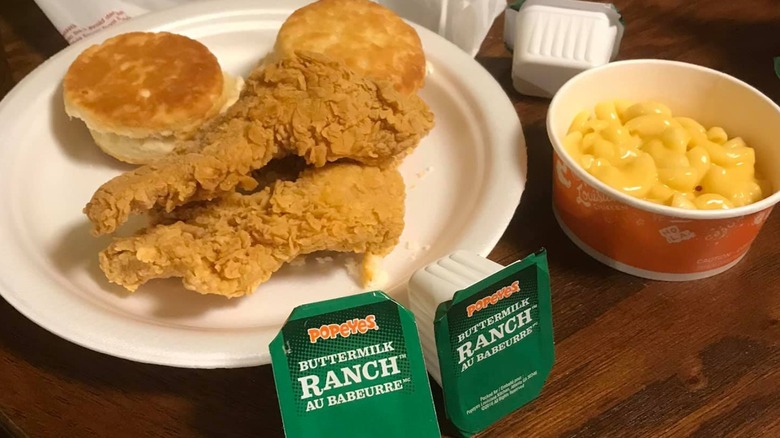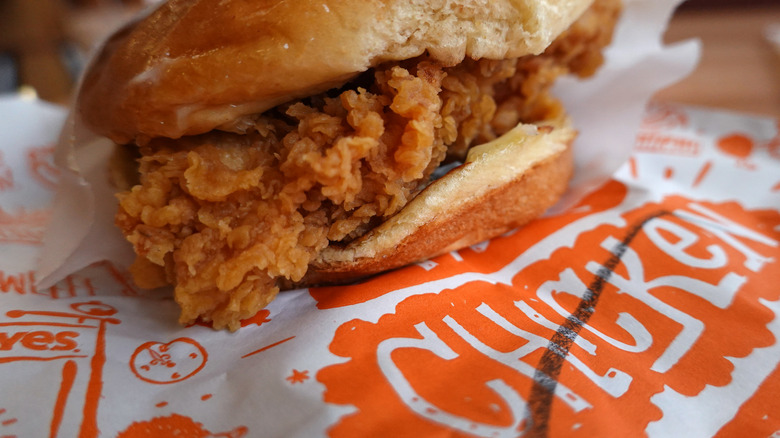Why You Should Think Twice About Getting Popeyes' Buttermilk Ranch
Landing on the moon may well be considered one of humankind's greatest achievements, but is it really anywhere near as good as inventing ranch dressing? According to The Gazette, the creamy meal accompaniment was created in 1949 in Nebraska by a plumber called Kenneth Henson, who went on to develop the Hidden Valley brand.
Data reported by The New York Times suggests that ranch is considered to be a favorite dressing by 40% of Americans, with its nearest competitor Italian receiving the support of only 10%. That probably explains Money's report that the U.S. ranch industry is worth $1 billion, tens of millions more than the ketchup sector.
Not wanting to avoid this hype, Popeyes features ranch dressings as part of its range of dipping sauces. But although ranch is a hit with many Americans, the health impacts are far more questionable. Popeyes' Buttermilk Ranch is noticeably loaded up with calories, saturated fat, and sodium compared to its small serving size, but precisely how unhealthy is it?
Popeyes' Buttermilk Ranch has some concerning nutritional facts
According to nutritional data provided on the Popeyes website, a serving of the restaurant chain's buttermilk ranch is one ounce — not the heftiest of portions by any stretch, so keep that in mind when reviewing what it contains. The information shows that each portion contains 140 calories, as well as 3 grams of saturated fat.
Daily calorie intake should not exceed 2,400 for women or 3,200 for men, details Verywell Fit, while it is urged that saturated fat does not make up more than 13 grams of a daily diet, notes the American Heart Association. Each serving is also filled with 230 milligrams of salt, which is 10% of the FDA's recommended daily maximum of 2,300 milligrams. The American Heart Association reports that high saturated fat consumption is attributed to causing heart disease, and excess sodium in diets can lead to high blood pressure, which could trigger strokes (via the FDA).
Aside from these nutritional concerns, SFGate reported that buttermilk itself does have some benefits. It is said to be a source of calcium and vitamin D, both of which support bone health.

